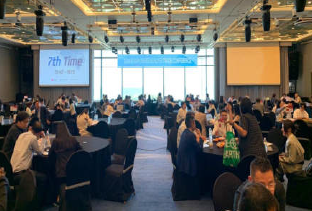Busan's Ambitious Plan to Join Global City Ranks

In a significant move that signals South Korea's ambition to redefine its urban and economic landscape, the city government of Busan has unveiled its concerted efforts to legislate the "Special Act for the Establishment of Busan as a Global Hub City." This legislative initiative is not merely a procedural step; it represents a visionary leap toward positioning Busan at the forefront of global logistics, finance, and technology. By drawing parallels with the transformative journeys of cities like Singapore and Shanghai, Busan aspires to metamorphose into an epicenter of innovation and economic dynamism. The city has embarked on a strategic campaign, engaging with key political figures across the spectrum to ensure the act's passage within the tenure of the 21st National Assembly.
At the heart of Busan's ambitious transformation lies the "Special Act for the Establishment of Busan as a Global Hub City," a legislative blueprint designed to elevate the city's status on the international stage. This act is a strategic endeavor to harness Busan's unique geographical and economic assets, transforming it into a pivotal center for international logistics, finance, and cutting-edge industries. The vision is clear: to model Busan's development trajectory on the success stories of global cities that have become synonymous with innovation, economic growth, and global connectivity.
The act envisions a comprehensive overhaul of Busan's urban infrastructure and regulatory environment, aiming to create a conducive ecosystem for businesses and industries to thrive. By attracting international businesses and investments, the initiative seeks to catalyze the city's economic growth, positioning Busan as a crucial link in global trade and finance networks. The ultimate goal is to create a self-sustaining urban economy that is resilient, innovative, and globally competitive.
Mayor Park Heong-joon has proactively engaged with South Korea's political leadership, seeking bipartisan support for the act's swift passage. This includes strategic discussions with both ruling and opposition party leaders, underlining the act's national significance beyond local interests. The mayor's advocacy underscores a collective recognition of the need for legislative action to unlock Busan's potential as a global hub.
Key Features of the Special Act
The "Special Act for the Establishment of Busan as a Global Hub City" is rich with strategic measures aimed at accelerating Busan's evolution into an international nexus of commerce, finance, and innovation. Central to the act are proposals for the creation of specialized economic zones within Busan, designed to attract global businesses through a mix of financial incentives, tax breaks, and streamlined regulatory procedures. These zones aim to foster a vibrant ecosystem for high-tech industries, logistics, and financial services, encouraging both domestic and international companies to establish their operations in Busan.
Moreover, the act proposes significant regulatory reforms to facilitate ease of doing business, including the simplification of investment procedures and the provision of comprehensive support services for foreign investors. This legislative framework is expected to enhance Busan's attractiveness as a business destination, paving the way for increased foreign direct investment and the creation of high-value jobs.
The special act also underscores the importance of infrastructure development, proposing substantial investments in port facilities, transportation networks, and digital infrastructure to support the city's global logistics capabilities. By enhancing connectivity and efficiency, these initiatives are designed to solidify Busan's role as a leading international maritime hub and a gateway to the Asia-Pacific region.
Reactions to the special act from various stakeholders have been overwhelmingly positive, with many emphasizing its potential to transform Busan into a global economic powerhouse. Government officials, local business leaders, and urban planners have voiced their support, highlighting the act's comprehensive approach to urban development and its alignment with South Korea's broader economic goals. However, some experts have called for careful consideration of the environmental and social impacts of rapid urbanization, advocating for sustainable development practices to be integrated into the act's implementation.
Embracing Global Connectivity: The English-Friendly City Initiative
Busan City also unveiled its English-Friendly City Initiative on February 6, 2024. Aimed at breaking language barriers and fostering a more inclusive community, the initiative showcases Busan's determination to create an environment conducive to international business, tourism, and education. With Mayor Park Hyung-jun leading the declaration ceremony, the city laid out its vision for a more accessible Busan, emphasizing the importance of English in achieving its global hub city status. Educational programs and community engagement efforts, such as the introduction of the 'All-Star English' radio program, signal Busan's proactive approach to enhancing English proficiency among its residents. This initiative not only complements the city's legislative efforts to transform into a global hub but also positions Busan as a forward-thinking city committed to inclusivity and global connectivit
Next Steps and Legislative Process
The journey from proposal to law involves navigating South Korea's legislative process, which requires the special act to gain approval from the National Assembly. While bipartisan support has been promising, the act faces procedural steps including committee reviews, public hearings, and multiple rounds of voting. The timeline for these processes remains uncertain, but the concerted efforts of Busan's leadership and the evident cross-party recognition of the act's importance suggest a favorable outcome may be on the horizon.
The successful passage of the special act will mark the beginning of a new chapter for Busan, requiring coordinated efforts between the government, private sector, and local communities to realize the city's global hub ambitions. As Busan stands on the precipice of transformation, the anticipation and support for the special act reflect a shared vision for a prosperous, interconnected future.
The "Special Act for the Establishment of Busan as a Global Hub City" represents a bold step forward in South Korea's pursuit of urban innovation and global competitiveness. By fostering an enabling environment for business, investment, and technological advancement, Busan is poised to redefine its role on the world stage. As the act moves through the legislative process, its potential to catalyze economic growth, create jobs, and enhance the city's international stature is clear. The vision for Busan as a global hub city encapsulates not just the aspirations of a city but the forward-looking trajectory of an entire nation seeking to cement its place in the global economic landscape.



Comments ()